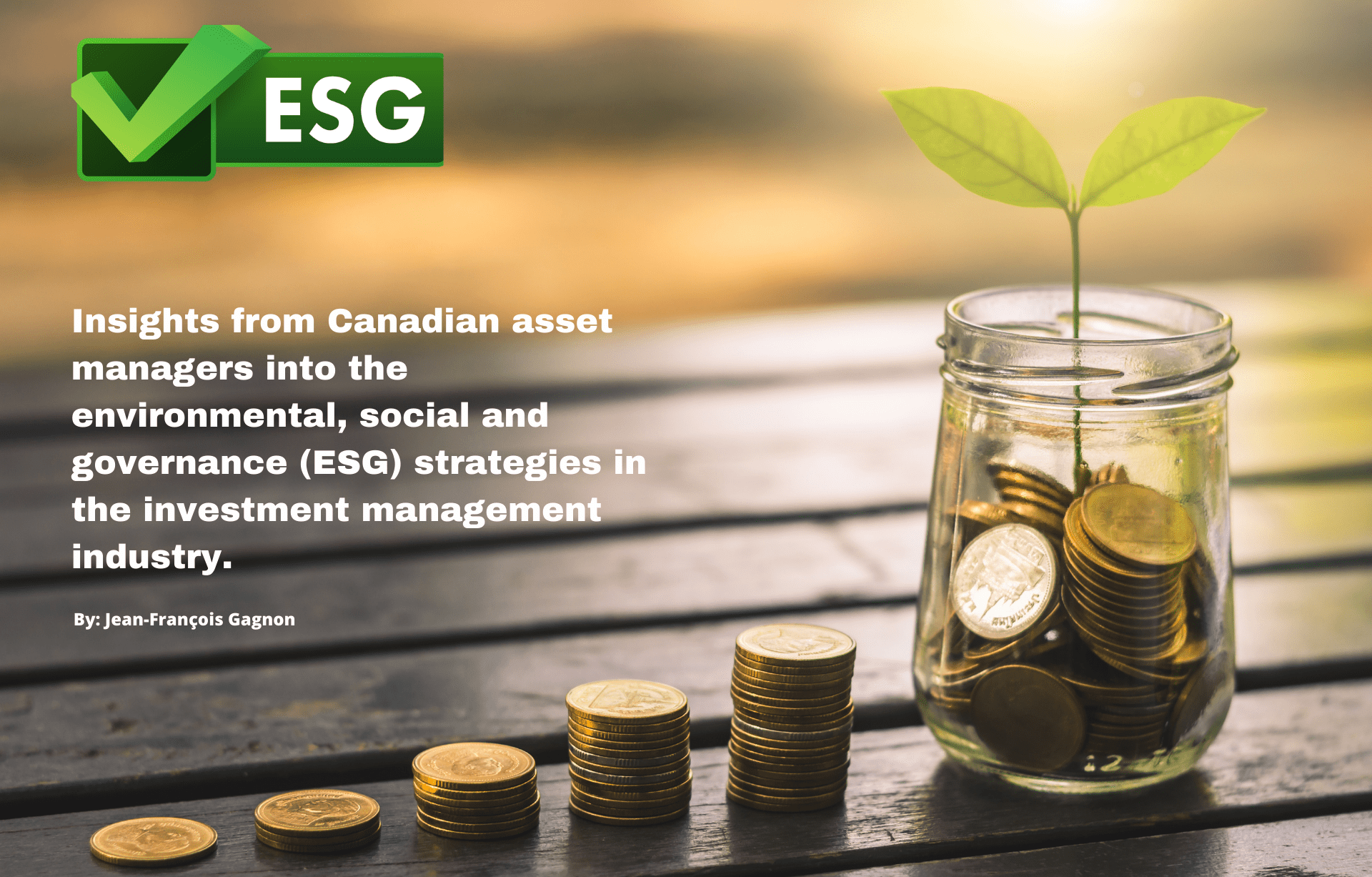
By Jean-François Gagnon
2021 was nothing short of a watershed year. Amid what was already a year of change across all industries, the COVID-19 pandemic served as a further accelerator of transformation. This was the case in capital markets with investments on an environmental, social and governance (ESG) basis, fuelled by some of these highlights of the year:
2019 saw a record inflow into ESG-branded mutual funds, capturing 4x the level experienced in 2018, which was a record year itself. Not to be undone, 2020 came in at 2x the 2019 level of ESG fund inflows.
Governments globally started to invest massively in sustainable and innovative infrastructure – from clean airplanes to affordable housing.
Global leaders brought to light the “tectonic shift in capital markets,” investments taking place and a program that referred to ESG buzzwords such as “…sustainable, resilient economic systems,” “…responsible industry transformation…” and “enhancing stewardship…” programs.
UK and Japan stewardship codes adopted in 2020 have redefined stewardship for asset owners: “The responsible allocation, management and oversight of capital to create long-term value for clients and beneficiaries leading to sustainable benefits for the economy, the environment and society.”
The World Economic Forum’s International Business Council (WEF-IBC) – a group of 120 global CEOs – has proposed a set of common metrics for measuring important ESG metrics, with the goal of driving global standards convergence to provide asset managers and investors with better data for investment decision-making.
Given the growing spotlight on ESG factors and long-term value creation, EY conducted a survey of Canadian asset managers to better understand what their clients were asking them, how they are approaching ESG now and beyond, and how they are evolving their operating model as a result.
The survey results confirm the current diversity of strategy and value propositions, as well as the strong drivers of adoption and evolution.
Most asset managers have been reactive to the market.
The integration of ESG into investment decision-making is taking place at two levels: Across all products – only 50% indicated being fully integrated.
From the point of view of the sophistication and robustness of integration.
The majority of respondents anticipate developing more outcome-based products in the future, but their immediate focus is on integration.
Institutional clients continue to drive the demand for modern ESG investing — that is, not using the traditional exclusionary approach — while ultra-high-net-worth clients are demanding the expansion of ESG propositions to include outcome-based products, and some are even hinting at philanthropic products.
Discussions on future perspectives and challenges reinforced the fundamental need for quality and standardization of data and taxonomies
Based on the survey results and discussions, the conclusion section proposes three tenets for senior leadership: articulating the ambition, adapting the investment and operating model, and executing. We believe these are necessary to build competitive advantage.
As illustrated by our survey, ESG is clearly a key strategic consideration for asset managers across Canada – both for those that have been using it for years and those that are just ramping up.
Far more than a fad, ESG represents a fundamental change in investment, and we are still in the early stages of understanding its full impact on capital markets. We believe that the client demand for ESG will continue unabated and that asset managers that are able to jump ahead with appropriate offerings and capabilities will gain a considerable competitive advantage.